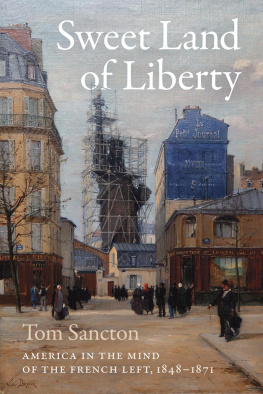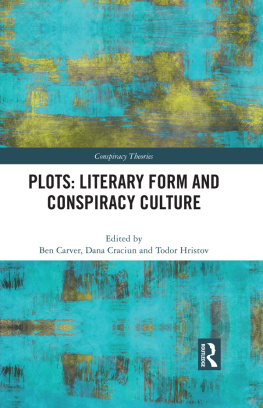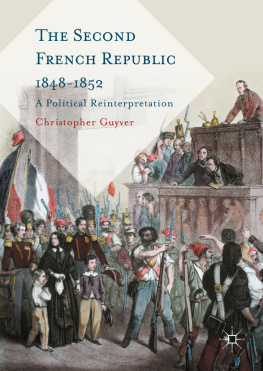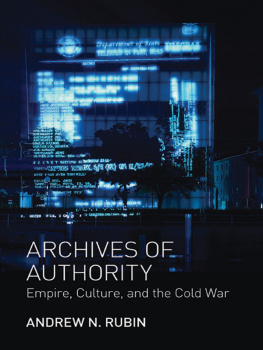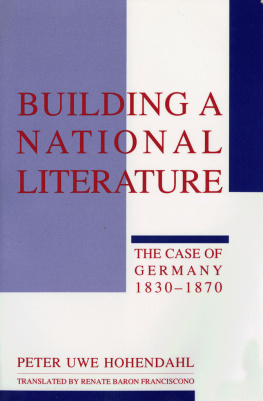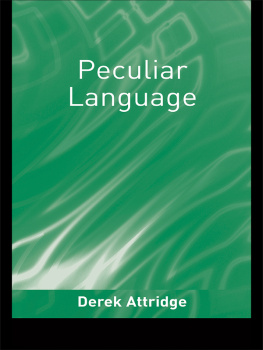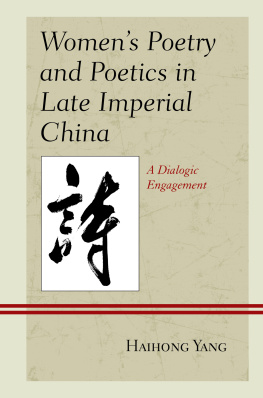AUTHORITY IN CRISIS IN FRENCH LITERATURE, 18501880
For R. Reed Whidden
Authority in Crisis in
French Literature, 18501880
SETH WHIDDEN
Villanova University, USA
ASHGATE
Seth Whidden 2014
All rights reserved. No part of this publication may be reproduced, stored in a retrieval system or transmitted in any form or by any means, electronic, mechanical, photocopying, recording or otherwise without the prior permission of the publisher.
Seth Whidden has asserted his right under the Copyright, Designs and Patents Act, 1988, to be identified as the author of this work.
Published by
Ashgate Publishing Limited
Wey Court East
Union Road
Farnham
Surrey, GU9 7PT
England
Ashgate Publishing Company
110 Cherry Street
Suite 3-1
Burlington, VT 05401-3818
USA
www.ashgate.com
British Library Cataloguing in Publication Data
A catalogue record for this book is available from the British Library
The Library of Congress has cataloged the printed edition as follows:
Whidden, Seth Adam, 1969
Authority in crisis in French literature, 1850-1880 by / Seth Whidden.
pages cm
Includes bibliographical references and index.
ISBN 978-1-4724-4426-4 (hardcover) -- ISBN 978-1-4724-4427-1 (ebook) -- ISBN 978-1-4724-4428-8 (epub) 1. French literature--19th century--History and criticism. 2. Authorship--Political aspects--France--History--19th century. 3. Authority in literature. 4. Social values in literature. 5. Rimbaud, Arthur, 1854-1891--Criticism and interpretation. 6. Verne, Jules, 1828-1905--Criticism and interpretation. 7. Literature and society--France--History--19th century. I. Title.
PQ283.W55 2014
840.9007--dc23
2014022865
ISBN 9781472444264 (hbk)
ISBN 9781472444271 (ebk-PDF)
ISBN 9781472444288 (ebk-ePUB)
Contents
Acknowledgments
Drawing on areas of inquiry that I have been working on for the better part of the last seven years, this volume received precious support at a few key moments: in fall 2009, a semesters research leave made possible by the generosity of the Starr Foundation, Lady Margaret Hall (University of Oxford), and Villanova University; archival research that I performed in April 2013 as Pascal Pia Fellow at the W.T. Bandy Center for Baudelaire and Modern French Studies at Vanderbilt University; a sabbatical leave in 20132014, for which I am grateful again to Villanova University and also to the research group with which I worked, LIRE (Littrature, Idologies, Reprsentations, XVIIIe et XIXe sicles), UMR 5611; and an invitation in May 2014 to the nineteenth-century French studies seminar at Emmanuel College (University of Cambridge). Parts of this books discussions appeared in earlier versions elsewhere, indicated in notes and bibliography; all appear here with permission, and with my gratitude. The stunning cover image, Colonne Vendme terre: la Commune de Paris by Bruno Braquehais (18231875), is from the collection of the Bibliothque Nationale de France, and appears courtesy of the Runion des Muses Nationaux and Art Resource.
I happily undermine my own auctority and admit that this study has benefited from comments from a great multitude of generous colleagues, including Arnaud Bernadet, Jean-Pierre Bobillot, Benot de Cornulier, Philippe Dubois, Solenn Dupas, Yann Frmy, Marie-Chantal Killeen, Franois Massonnat, Steve Murphy, Gerry Prince, Philippe Rocher, Rob St. Clair, and Nick White. For their enduring support and good humor I thank my family and Cheryl Blank, Michael and Emily Bukowski-Thall, Andrea Goulet and Jed Esty, Herv Hilaire and Anne Bourdelle, Mike Lawrence and Doug Wright, Franz Litz, Shawn and Lorie Lynch, Keith and Eric Martin de Gaudemont de la Montforire, Dave Schmoyer and Steve Brady, and Andy and Bess Seewald. I am very fortunate to have worked, twice now, with Ann Donahue and her talented colleagues at Ashgate: this time with Kirsten Giebutowski, who made the final steps easy. Memories of Dennis Minahen, Michael Pakenham, and Bill Thomas helped keep me going at different times during this project; I can only hope that they would have been pleased with the result.
This book was written in places called Caulnes, Cliff Island, Nashville, Oxford, Paris, Rennes, Saint Davids, and Villanova. My children Posey and Carter were with me almost every step of the way, and I thank them for punching their tickets and sharing the journey with me. Fourteen years ago, my wife Beckythe best reader I know, and an even better editorput down her book to take a long walk on the Fire Road with me, to help figure out where wed go next; she has my renewed and eternal gratitude for that day and for every day since.
S.W.
A Word on the Text
Quotations in French are followed by English translations, which come from published materials whenever possible. Bibliographic information in parentheses refers to the editionFrench original or English translationthat immediately precedes it; all editions appear in the Bibliography. In the cases of French texts for which no published translation is available, the translations are mine.
S.W.
Introduction:
Second Empire, Empire of zut
For as long as there have been texts, there have been authors; and for as long as there have been authors, there have been questions about their authority. In whose name do we write, and on behalf of whom? What right do we have to convert thoughts, deeds, speech, and emotions into written word? Who bestows upon us that right; that is, upon what law or laws does our authority ultimately depend? How is the authority of the written word received, by readers and by other writers? What can authors do to increase the strength of their message, to make it appear more convincing, weighty, and perhaps even important? Finally, and conversely, what can be doneby authors, by readers, by all who approach a textto question an authors authority: to weaken it, subvert it, avoid it altogether, or overthrow it outright? The present study considers these and other similar questions about a specific period in French literature, in French history: the Second Empire (18521870), rich in its manifestations of authority, both in the political realm and in the literary texts that reflect their moment.
Authoritys decline is certainly not unique to this time period, country, or political regime, and many writers consider its slow loss to be one of the defining characteristics of the modern era: Hannah Arendt referred to it as the general doubt of the modern age (464). In her essay What Is Authority?, she searched for its traces, beginning her discussion by stating, In order to avoid misunderstanding, it might have been wiser to ask in the title: What wasand not what isauthority? For it is my contention that we are tempted and entitled to raise this question because authority has vanished from the modern world (462).always bearing the potential to impact an other; as he describes it, cest donc un phnomne essentiellement social (et non individuel); il faut tre pour le moins deux pour quil y ait Autorit (58) [it is therefore an essentially social (and not individual) phenomenon; there must be at least two for there to be Authority]. The texts considered in the present study bear out Kojves insistence on authoritys social imperative.
Of course, just as authority and its discontents were not new in the nineteenth century, the same could be said for discussions of authors roles behind their texts; as Ren Le Pays wrote in Au lecteur, the opening piece to his 1664 Amitiez, Amours, et Amourettes: Jay cr enfin que dans un Pays o lon souffre des Marquis sans Marquisats, & des Abbez sans Abbayes, on pourroit bien aussi souffrir des Autheurs sans authorit (quoted in Denis 142) [I finally believed that in a Country in which we tolerate Marquis without Marquisates, and Abbots without Abbeys, we might as well tolerate Authors without authority]. According to Michel Foucaults landmark study, Quest-ce quun auteur? [What Is an Author?], Le Pays was writing during the period that was characterized by what Foucault identifies as a chiasmus between two types of discourses and their authors related authority. During the Renaissance, a discourse was only considered to be truth if it was tied to an authority figure, while literary texts, being anonymous, lacked such weight. Starting in the seventeenth century, scientific texts lost the need for their authorial backinga texts authority coming instead from its measurable truthswhile literature headed in the opposite direction:
Next page


